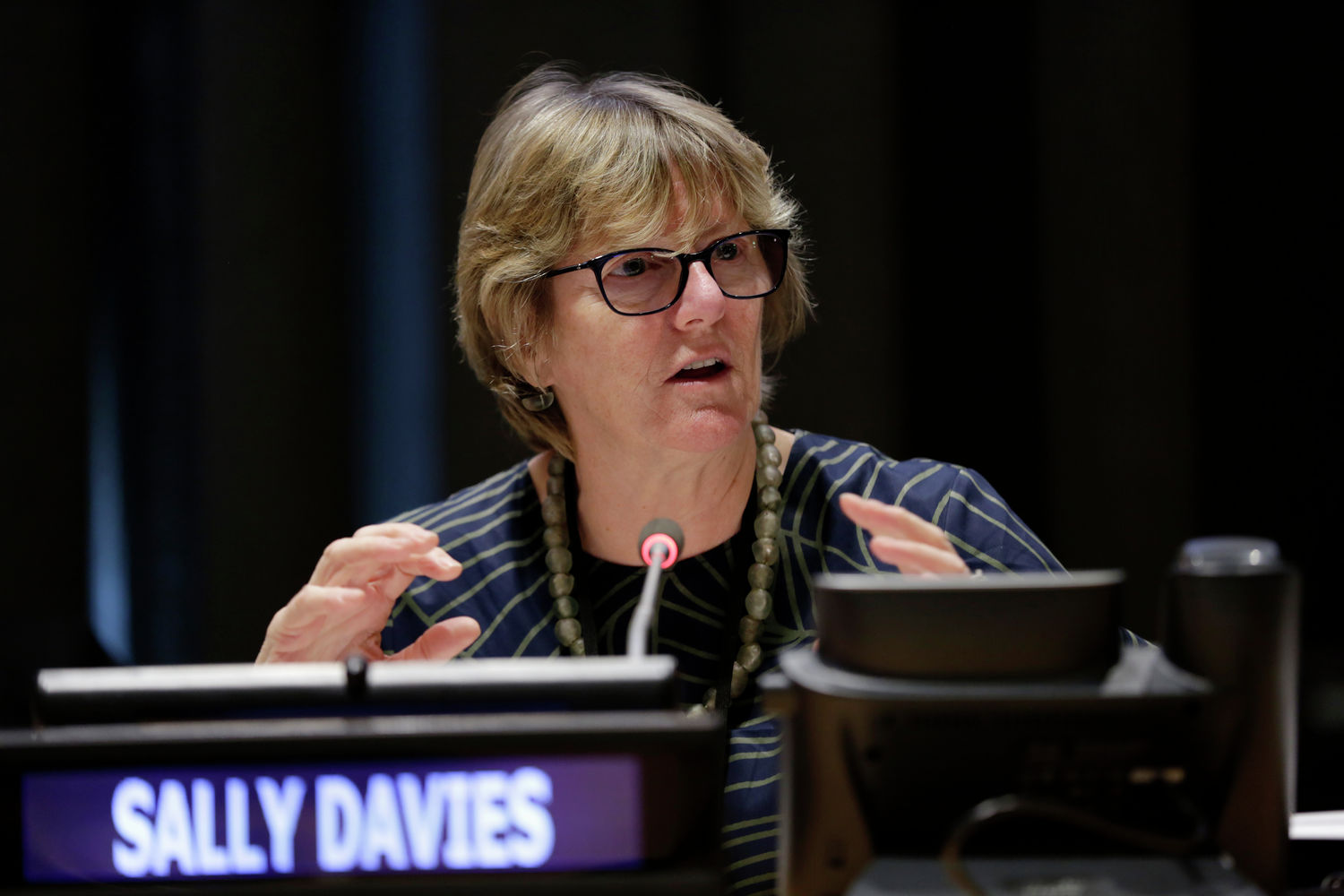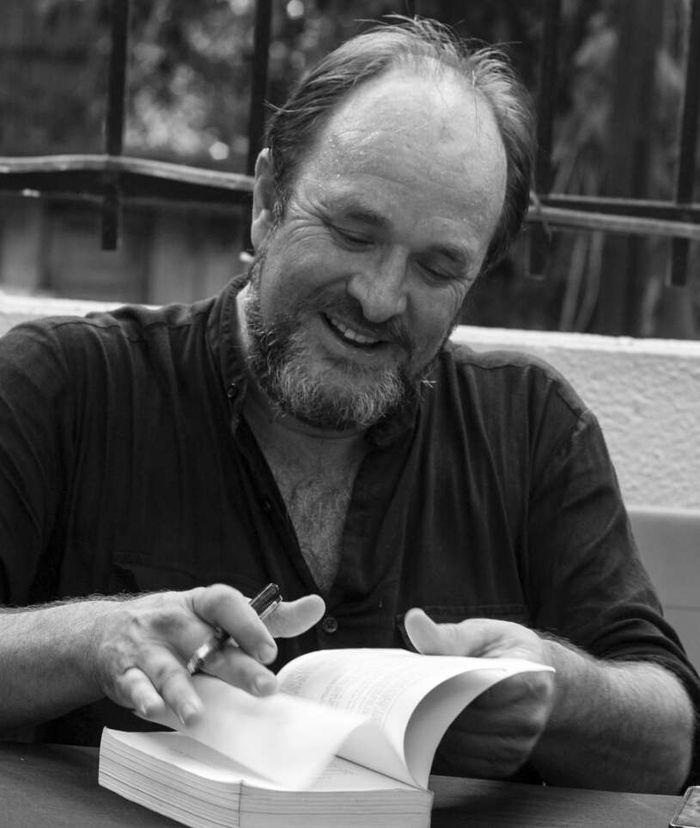Dame Sally Davies served as Britain’s Chief Medical Officer – the most senior doctor in the Civil Service, from 2010 to 2019. Given her prior experience in leadership roles, and in both public life and science, her entry into the role seemed only natural. When asked about her appointment to the position, she doesn’t mince her words; “I was by far the best.”
As the first woman to have held the post, and without the conventional background as a public health specialist, it might be assumed that an ounce of intimidation accompanied her entry into the position. This was a woman, however, of a particular sort of impenetrable fortitude. “It’s very difficult to intimidate me,” she declares. “’Intimidate’ implies people against me, and when people try, I usually find it funny.” Instructing prime ministers of the facts, the figures, and the best course of action - bluntly and without equivocation - comes with the job; “I will say what I think, and people don’t like that. To be CMO you have to take difficult decisions and live with them.”
“I will say what I think, and people don’t like that”
While not easily intimidated, she does recall encountering a good dose of imposter syndrome at the outset of some of her most daunting tasks – something, she argues, is very different from intimidation. Such kinds of self-doubt are all too familiar to the Cambridge student, and she accordingly advises, “hold your nose and jump, I often say – most of us can be stretched and we don’t realise it.”
The job of CMO, Sally informs us, is to advise the government of the day “without fear or favour”, and to bridge the gap between policy and science. Whether representing Britain on the WHO’s executive committee, producing independent annual reports, or persuading tentative governments to take action, the role afforded little room for rest. Her track record of convincing people to “get policy moving”, she explains, was particularly strong. Among her principal contributions lie the introduction of the National Health Index, new alcoholic guidelines, work on genomics and, in particular, gearing a stronger focus towards tackling Antimicrobial Resistance (AMR), to which she has long advocated globally.
“Hold your nose and jump, I often say – most of us can be stretched and we don’t realise it”
“It’s a silent and insidious pandemic” she warns. As the third most important underlying cause of death after heart disease and heat stroke, “we know it’s only getting worse and worse.”
Looking at the data for AMR, the former CMO tells us, bodes for “a very scary future.” Modern medicine is “underpinned by the infrastructure of anti-infectives”, but there is an “empty pipeline” of new drugs coming onto the market. “We need more science, and we need more incentives, so that the drug companies will invest in them – at the moment, they make losses.”
Dame Sally recently partnered up with the Charades Theatre Company to produce a musical about AMR, which sold out at the Edinburgh Fringe in 2019. She compares the diverse manner by which the issue is transmitted, and how people come to realise it matters, to that of climate change. “I think it sounds very complicated”, she laments. “We’ve got to find ways to make it more simple.” A team of academic experts, for instance, published a children’s book on AMR in December of 2019.
Having faced a number of “emergencies” as CMO, Dame Sally lists the outbreak of Ebola virus in West Africa as amongst the gravest. She recalls, amid fears the virus might find its way into Britain, stating publicly that the UK would experience “at least a handful of important cases”. “And wasn’t that what we saw in the end?”, she asks rhetorically, emphasising the importance of public transparency during such events. People need to “understand what the risks are”, she says, as in all public health emergencies, “and why we’re spending money”.
Another crisis she faced came suddenly in 2018, with the Salisbury poisonings of Sergei and Yulia Skripal. It was eventually revealed that Russian state actors had committed the attack using the nerve agent novichok. “Thank goodness they did it in Salisbury”, she says, explaining that the experts on this toxin happened to work at the Porton Down science park just outside the city. “That’s probably why [the Skripals] lived”. Worrying that the spare nerve agent had been “jettisoned”, she came out early to warn residents not to pick up anything they hadn’t dropped themselves. The former CMO recalls, rather soberly, that her fears were realised when a woman sprayed herself with what she thought to be a spray bottle of perfume.
At the outset of the COVID crisis in 2020, Dame Sally regrets that this focus on transparent public dialogue was not apparent. The country did not know “the trade offs when the politicians took decisions” - a point she adds particular emphasis to. The government needed to “treat the public as decent, cognizant human beings and talk to them”. She believes the resistance to a public debate about the “trade offs between the economy [and] the NHS” was fundamentally “political”, and lies at the core of what she felt should have been done differently. She points to a lot of evidence that science communication can be used to “take the public with you”.
“[The government need to] treat the public as decent, cognizant human beings and talk to them”
A further point of improvement, she observes, would have been going “stronger, earlier, and now longer, on the value of mask-wearing”, admitting that she continues to wear a face-mask in any crowded space.
On 13th March 2020, she took the controversial decision as Master of Trinity to send students home early. “We had a lot of complaints”, she recalls, for forcing students out before the end of full term. However, she feels she was vindicated after the imposition of lockdown the following week, after which travel would have been “much less safe” and “much more expensive”. Indeed, over that Easter she received emails from students saying her call was the right one. She maintains that despite the backlash, the decision “wasn’t difficult”, in light of “what was happening in China and Italy”.
To those who claim the pandemic is over, Sally forebodes “it isn’t – we will have further waves.” Now with 3.8 million Brits infected with COVID within a week as of July 2022, her view is certainly prescient. The only question is how serious these waves will be– a prospect determined by both the genomic changes and the immunity status of the population, whether from previous infection or vaccination. The flu, she compares, can have a few mild years and then a really severe one – “so it isn’t over.” When might we be out of the pandemic waves and into normality? “I wouldn’t feel happy saying that until we’re through the next winter” she replies, before posing the rhetorical: how do we even delineate the concept of ‘normality’?
The idea that viruses will continually mutate to become milder and milder, she denounces as a “fallacy.” “I think there’s no evidence for that. Often they do, but there’s no evidence that COVID will.”
Going forward, COVID has taught us all a tremendous deal about how we respond to pandemics, but how do we prepare for the next one? Davies believes the key is to pick things up earlier than they were picked up in 2020. “I hope we learnt our lesson that we would be better preparing a few weeks earlier” she says, adding: “even if it’s not needed, it would be a very good exercise.” Likewise, we can no longer “shrug off” what happens on the other side of the world. She hopes the lesson is learnt that “if something breaks out elsewhere, we switch on our preparation and take action that much earlier.”
“[Theresa May] cared about people and is a decent human being – I respected her”
Ultimately, she remembers her nine years as CMO, under three different prime ministers, as “fascinating, on every level.” While refusing to comment on the incumbent’s tenure, of which she served for only a few months, she did cite her fondness for Johnson’s predecessor, Theresa May. “She did her work very carefully, she listened and was thoughtful; she cared about people and is a decent human being – I respected her”.
Since October 2019, Dame Sally has acted as Master of Trinity College – the 39th individual, and first woman, to hold the appointment. Having stewarded a locked-down college through the pandemic just months into her tenure, she confesses, “I am still learning my way around.” While the lockdowns raged on, the University’s collegiate system, she argues, was ideal for handling the course of COVID – the college community was “small enough that you could think about the students and try to get it right for them.” Even the historic college buildings were in retrospect quite the advantage; the open spaces and windy staircases “are fantastic”, she counsels, “when you think about the importance of ventilation.” Seeing college life re-emerge out of lockdown, though, was the sort of change of scene that she stepped down from CMO for – “after all, I came here to be surrounded by students.”


